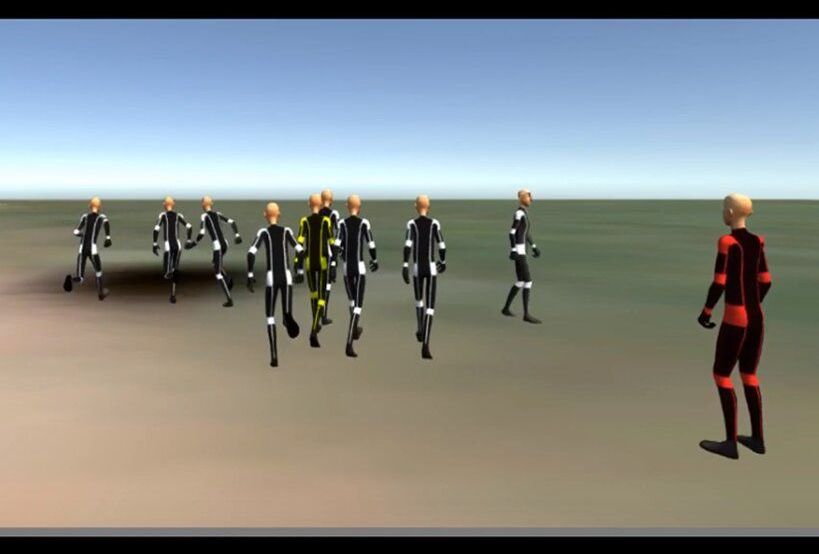Researchers at Pontifical Catholic University of Rio Grande do Sul have recently carried out a study aimed at evaluating people’s perceptions of geometric features, personalities and emotions presented in video sequences with virtual humans. Their study, outlined in a paper pre-published on arXiv, merges computer science tools with psychology research practices.
“Our recent work is part of a larger project in collaboration with the psychology department at our university,” the researchers told TechXplore, via email. “The main idea is to investigate emotions, personalities and cultural aspects detection in pedestrians and crowds from video sequences. In the context of the present paper, this research involving perception comes from the need to know if users can perceive emotions and personalities in virtual characters and if camera’s position or type of character can influence their perception.”
For their experiments, the researchers adapted a dataset that contained tracking files of pedestrians captured in spontaneous videos, changing humans in the footage into identical virtual characters. Their goal was to evaluate whether people who watched the footage could focus on the behavior of the virtual humans in the videos instead of being distracted by other features.
